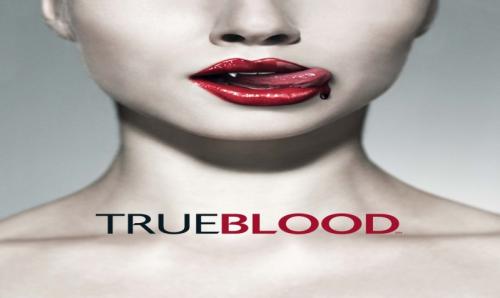What do you prefer: "true" or synthetic blood?

It reminded me of that genius born of the fertile imagination
of the brothers Juan and Ernesto Padron, the most sympathetic and very Cuban
Vampires in Havana! , released in 1985, six years before the release of The
Southern Vampire Mysteries , a collection of books written by Charlaine Harris
that inspired Alan Ball to create True Blood .
That Alan Ball arrived with the remarkable endorsement that
represent American Beauty (AmericanBeauty) and two meters below ground (Six
Feet Under), was already a provocative invitation to lean out on this HBO
production in which vampires can move freely under the intense rays of the sun
to find in True Blood (bottled
synthetic blood) the brew that keeps them away from human blood. Within this
group is Bill Compton (Stephen Moyer), who with his mysterious past settles in
Bon Temps, a curious town in Louisiana where lives Skokie Stackhouse (Anna
Paquin), a waitress with telepathic powers (the protagonist of the Harris
novels), and where most of the action of this series that began to be
transmitted in September 2008 takes place.
True Blood begins when
Sookie frees Bill to be liquidated by a couple eager to extract what runs
through his veins: the powerful V, a blood that acts as a narcotic for human
beings. This is how Compton meets Jason (Ryan Kwanten) and Sam (Sam Trammell),
respectively, the brother of his savior and the owner of the bar where she
works, along with Tara (Rutina Wesley), her best friend, and the cousin of
this, Lafeyette (Nelsan Ellis), who cooks and also traffics the fashionable
drug.
Of course we could not miss True Blood the always effective
love triangle that has as third vertex Eric Northman (Alexander Skarsgard), the
sheriff of the bar Fangtasia, where the integrating vampires meet, that is,
those who can live in peace with people, but who are hated by traditionalists:
those who refuse to surrender to "modernity", because theirs is
"old-fashioned".
In his first season this dramatized that started with a low
audience compared to other HBO proposals, but in the end managed to complete 80
episodes distributed in seven installments (ended in 2014), focused mainly on
the passions that the clairvoyant awakens in her two pale pretenders, as well
as in the growing number of brutal murders that arouse terror in the people and
endanger the peaceful coexistence that existed between mortals and supernatural creatures.
In that way True Blood took off who, like her gender
partners, take advantage of that fascination that these fantastic beings have
historically generated, of action, blood and sex that cannot miss a fiction of
this theme, to which is added the attractiveness of telling a story of intrigue
and suspense, the love-hate relationship that is established between the three
main characters, and the struggle that will be established in Bon Temps for the
search for social acceptance. The most interesting thing is that at first it
seems that Ball's essential goal is to make fun of those teen vampire series
and movies so fashionable, and instead of a drama he presents us with a comedy
of the absurd.
I recognize that at least in the initial seasons True Blood
is fun and entertaining, thanks to that ability of the writers to keep the pace
right and to devise a plot madness after another. However, there came a time
when, in truth, they went their hand, especially introducing more and more
characters and weaving more and more plots; as if they were not really clear
where they wanted to take the series.
In this way, with the passage of the chapters, it was losing
the north that in the beginning showed a somewhat different aesthetic. To this
it is added that here not even one can give the pleasure of enjoying
outstanding performances, that impress, that excite.
Of the leading trio is the Swedish Alexander Skarsgard, who
achieves the most interesting performance, because the British Stephen Moyer
does not have many records, but far exceeds who will be an Oscar for The piano
and even a Golden Globe in the first season of True Blood: Anna Paquin. Could
it be that he later lost enthusiasm? Because worse actress than she in that
series would have to send it to look for (in the case of the men Joe
Manganiello, like AlcideHerveaux, it does not find rival). It is the villain
Russell Edgington, played by Denis O'Hare, who best comes out standing within
the very rich cast.
Some blamed the obvious loss of quality that began to be seen
in the TV series to the exit that occurred at the end
of the season, Alan Ball, who by the way the same powerful television network
recently supported to see the light Here and Now, with Tim Robbins and Holly
Hunter, about a contemporary multiracial family that has adopted children in
different parts of the world. But, returning to the case that concerns us, True
Blood, we should say that a depth should not have been expected in it, which,
in my opinion, would never appear.





Comments